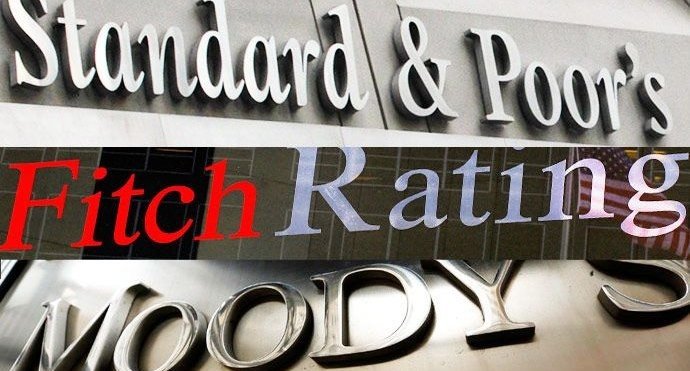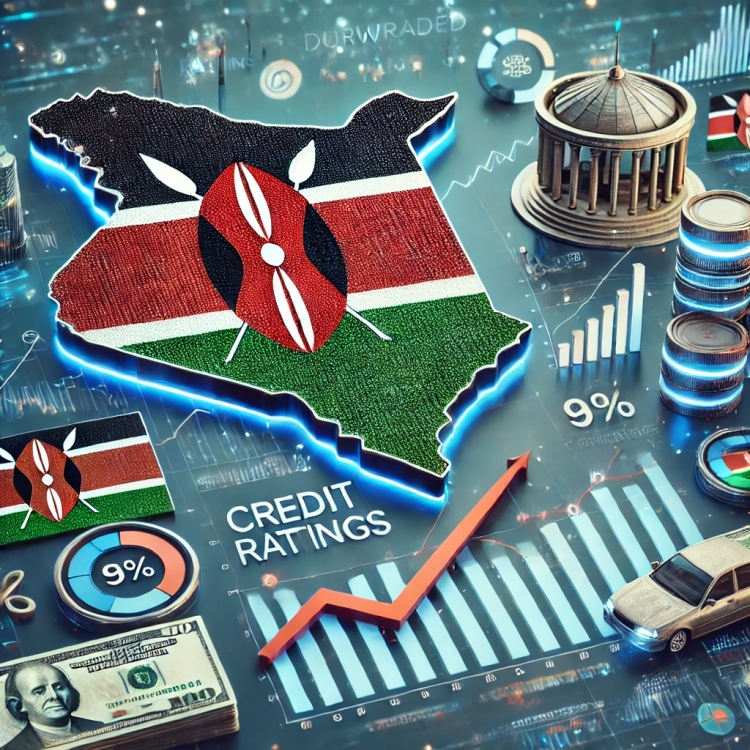Explainer: Moody's Downgrades Kenya's Credit Rating – What Does It Mean?
These ratings range from high-quality, low-risk ratings (like AAA) to low-quality, high-risk ratings (like Caa1). Here's a brief overview of the ratings:
- Investment Grade: These ratings indicate a low risk of default. Examples include AAA, AA, A, and BBB.
- Non-Investment Grade (Junk): These ratings indicate a higher risk of default. Examples include BB, B, CCC, and Caa1.
Countries like the US and some EU countries have been graded Investment Grade by Moody ratings
This move plunges Kenya's debt further into "junk" territory, signifying a much higher risk of default on its financial obligations.
The Root of the Downgrade
The primary culprit behind the downgrade among others is the Kenyan government's decision to scrap the controversial Finance Bill 2024. This bill, which proposed a series of new taxes to raise revenue, faced fierce public opposition, ultimately forcing its withdrawal. Moody's interprets this as a sign that the government lacks the ability to implement necessary fiscal consolidation measures – actions that would control the country's growing debt burden.
What's this junk status?
A Caa1 rating reflects a creditworthiness considered to be of "poor standing" and carrying a "very high credit risk." In simpler terms, investors now view lending to Kenya as much riskier, potentially leading to a significant increase in interest rates when the government borrows money. This, in turn, can have a domino effect on the economy.
The Potential Domino Effect
The downgrade could trigger a series of negative consequences for Kenya's economic well-being:
- Higher Borrowing Costs: As mentioned earlier, Kenya might face significantly higher interest rates when seeking loans from international institutions or private investors. This could make it much more expensive to borrow.
- Investor Flight: The "junk" rating might dissuade foreign investors from putting their money into Kenyan businesses and ventures.
- Currency Depreciation: A weaker credit rating could lead to a decline in the value of the Kenyan shilling. This, in turn, could lead to inflation.
This Writer's opinion (The views expressed in this section are solely those of the author and do not represent the opinions of Edgar Wades or its affiliates.)
This author believes in other better better options the governement could explore, not all hope is lost, these haapens.
The Kenyan government can still take steps to regain investor confidence and mitigate the negative effects of the downgrade. Here are some potential solutions this author believes would help:
- Fiscal Consolidation with Alternatives: The government can explore alternative measures to reduce the budget deficit and control debt, such as strategic cuts in non-essential government spending. Over the past few days alot of reports of wasteful governemnt expenditure has been streaming in from the office of the Auditor general
- Revenue Diversification: As economist Arthur Laffer famously observed, "At a certain point, it is counter-productive to raise taxes. If you tax too much, you will tend to discourage enterprise and economic growth." Focusing solely on spending cuts might not be enough. The government could explore alternative revenue streams through privatizing select state-owned enterprises or promoting economic sectors with high growth potential, like tourism and technology.
- Commitment to Reform: Following through on long-promised economic reforms can go a long way. This could include measures to improve transparency, fight corruption, and create a more business-friendly environment. These reforms would signal Kenya's long-term commitment to economic stability to investors.
- Open Communication: Keeping the public informed about the government's plans to address the debt situation and foster economic growth is crucial. Open communication can help rebuild trust and encourage public support for necessary reforms, meaning the governemnt should improve on public participation to avoid public dissatisfauntion in their policies
What's Your Reaction?



















